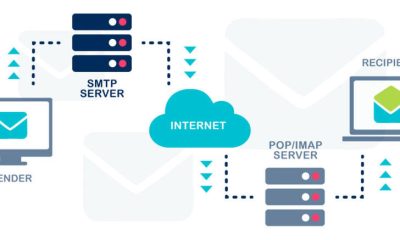Business
How to Build Credit Without Taking Out a Loan

You may think your credit score is tabulated according to how responsible you are when paying off debt. But loan repayment isn’t the only way the credit reporting bureaus assess your financial responsibility. Your score comprises several factors across your financial picture, and loans are just one of them.
If you want to better your credit score, there are many ways to do so without taking out a loan. To make lasting improvements, though, you need to understand how your financial habits influence your score. Here’s how to move the levers of your credit score while avoiding making unnecessary financial moves.
1. Maximize Your Impact on the Most Powerful Credit Factors
Your credit score takes five factors into account: payment history, credit utilization, credit mix, account age, and new credit. Your efforts to optimize these factors, which range from 35% to 10% in impact, can result in a noteworthy score improvement.
Scan your credit report to see what factors are working against you so you know what to focus on first. If you’re bad at paying bills on time, set up auto-pay whenever you can. You’ll fulfill your minimum payment requirements and build a history of on-time payments, which drives 35% of your score.
If your credit profile is lacking, you may be tempted to take out a loan. But doing so can require a score-reducing hard inquiry from a lender to assess your creditworthiness. Instead, consider getting a credit builder card to boost your score by improving your credit mix and payment history. Usually, these cards don’t require a hard inquiry and appear on your credit report as a variable line of credit. Plus, your on-time payments will continue to boost your biggest factor.
2. Use Your Conversation Skills to Improve Your Position
While your financial behaviors have the most impact on your score, there are other ways of making improvements. But to take advantage of this approach, you’ve got to be willing to make a few phone calls. Reach out to the financial institutions and companies you do business with over the next few weeks. Ask to speak to the loyalty department, and be ready to discuss your customer history and interest in improving your account relationship.
When you call your credit card issuer, prepare yourself by knowing how long you’ve been a customer. This important detail can help convey your loyalty when you ask for an interest rate reduction. Ideally, you’ve been paying off your balance in full each month. But if you haven’t, reducing your rate can help your payments lower your overall balance instead of feeding interest. Sometimes, card companies can even offer you a promotional rate, which can help accelerate your debt payoff.
Contact your television, internet, and phone providers to ask about loyalty discounts and other savings opportunities. Generally, entertainment providers are willing to compete for your continued loyalty by passing along discounts to longtime customers. If no discount or cost-savings measure is offered, ask about the process to close your account. Sometimes, a simple mention of ending the relationship gives the representative the leeway to reduce your fee. Use your found money to reduce debt and improve your credit utilization rate, which contributes to 30% of your score.
3. Monitor Your Credit Score Improvements to Keep You Motivated
Your credit score goals may be arbitrary, driven by what the bureaus view as an “excellent” score. Other times, you may target a score that opens up the opportunity for a financial product like a home loan. Whatever your motivation, it’s important to benchmark your current score, identify a goal, and track your progress. Post your target score on your fridge or office whiteboard as a visual reminder of your goal.
Check your score monthly to view your progress and log it into a spreadsheet or on your whiteboard. If it dips, research why and make changes to get yourself back on track. Remember, the financial institutions you do business with report your data to the bureaus on varying schedules. A high balance on your credit card right before your bill due date could skew your score. Making a mid-month payment can reduce that figure and, with it, your credit utilization ratio.
4. Consider Your Score Before You Make a Financial Move
The excitement of buying something new creates a dopamine rush like no other. If you were looking to lift your mood during the pandemic, you may have given into retail therapy too frequently. Instead of beating yourself up over past mistakes, adopt a practice that helps you keep your goals at the forefront.
You’ve already posted your target score and progress where you can see them. Now, it’s time to develop a “pause and think” practice. While it may feel funny at first, this simple trick can help you rewire your decision-making habits. Shifting from acting and then thinking to a practice of considering before acting can have wide-reaching benefits. Soon, you’ll be prioritizing your goals before making choices large and small, putting you back in control.
This pause-and-consider approach can stop you before you make a move that can damage your credit. For example, student loan refinancing offers are full of attractive rates and promises to frustrated borrowers in need of a break. Checking out your offer often requires a hard inquiry, without the promise of approval or better interest rates. One thoughtless move can ding your score with a hard inquiry with no benefit to show for it. Avoid unnecessary scars to your score by pausing before making a decision and reviewing your goals and needs first.
Good credit is a prerequisite for realizing many goals in life. A new set of wheels, your first home, or your dream job could all depend on proving your creditworthiness. Fortunately, there are many ways to demonstrate financial responsibility that don’t involve taking out a loan. Focus on optimizing the factors that make up your score and don’t discount the importance of thinking before you make financial moves. Stay the course, aim for consistent improvement, and your credit score will be on the upswing in no time.
Business
Why Stability Matters: Navigating the Choice to Move Fostering Agencies


The decision to become a foster carer is often driven by a profound desire to provide a stable, loving environment for children who have experienced significant upheaval. However, as the fostering landscape evolves, many carers find that their own needs for support and professional development are not being fully met by their current provider. This realisation often leads to a complex crossroads where carers must balance their loyalty to the children in their care with the necessity of finding a service that aligns more closely with their values and requirements.
The Catalyst for Change in Fostering Placements
For most individuals in the fostering community, the primary motivation for considering a move is the quality of support on offer. Fostering is an immensely rewarding path, yet it is also one that carries unique pressures. When a supervising social worker is overstretched or the out of hours support feels disconnected from the carer’s reality, the sense of isolation can become overwhelming.
Recent data suggests that the retention of foster carers is one of the most significant challenges facing the sector today. When carers feel undervalued or unsupported, the ripple effect reaches the children in their care. A transition is rarely a snap decision. It is usually the result of a long period of reflection regarding whether a different agency could offer better training, more competitive allowances, or a more therapeutic approach to care.
The Legal Framework and the Protocol for Movement
One of the most common misconceptions within the sector is that moving to a new agency is a legally fraught or impossible task. In reality, the Transfer of Foster Carers Protocol 2014, developed by The Fostering Network, provides a clear framework to ensure that transitions are handled professionally and, most importantly, with the child’s best interests at the centre of every discussion.
This protocol ensures that when a carer expresses an interest in moving, a collaborative process begins between the current agency, the local authority, and the potential new provider. This is designed to prevent any disruption to the child’s placement. The stability of the child is the paramount consideration, and any move is managed with a high degree of transparency to ensure that the transition is seamless.
Understanding the Process of Moving Providers
The physical act of moving requires a degree of administrative diligence. It typically begins with an informal conversation with a prospective new agency to gauge their culture and the specific support packages they provide. Once a carer decides to proceed, they must submit a formal notice of their intention to transfer to their current agency.
Following this, the new agency will undertake a new assessment, often referred to as a Form F assessment. While this might seem repetitive for experienced carers, it is a statutory requirement to ensure that all records are up to date and that the new agency fully understands the skills and history of the fostering household. During this time, meetings are held to discuss the financial arrangements and support plans for any children currently in placement.
Minimising Disruption for Children in Care
The most sensitive aspect of this journey is the impact on the children. It is a common fear among carers that moving agencies might result in a child being moved from their home. However, the Transfer of Foster Carers Protocol is specifically designed to protect these placements. In the vast majority of cases, the child remains exactly where they are while the behind the scenes administrative responsibility shifts from one organisation to another.
Maintaining a sense of normalcy for the child is vital. Professional agencies work hard to ensure that the child experiences no change in their day to day life. The only difference they might notice is a new face during supervision visits or access to different community events and support groups provided by the new agency.
Why Researching Your New Agency is Crucial
Not all fostering organisations are created equal. Some operate as large national entities, while others are smaller, independent agencies that pride themselves on a family feel and bespoke support. When looking at transferring between foster agencies, it is essential to look beyond the initial financial allowance.
Prospective transferrers should investigate the ratio of social workers to carers, the frequency of local support groups, and the specific therapeutic models the agency employs. According to the team at Match Foster Care, who are recognised for their child centred approach, a successful transfer is one where the carer feels empowered and re-energised to continue their vital work. Finding a provider that treats carers as professional partners rather than just a resource is often the turning point for many fostering families.
The Role of Professional Development and Support
A significant reason for seeking a new agency is the desire for better professional growth. Fostering is an evolving profession, and the needs of children are becoming increasingly complex. Carers often seek out agencies that offer advanced training in areas such as trauma informed care, attachment theory, and therapeutic parenting.
Furthermore, the quality of the peer network cannot be understated. Being part of a community where you can share experiences with other foster carers who understand the local context is invaluable. When an agency invests in its carers through comprehensive training and a robust support network, it directly translates to better outcomes for the children.
Final Reflections on Making the Move
Transitioning to a new fostering provider is a significant life event that requires careful thought and planning. It is a process rooted in the desire to provide the best possible care by ensuring that the carer themselves is adequately supported. By following the established protocols and choosing an agency that mirrors your own dedication to child welfare, the transition can be a positive step toward a more sustainable and fulfilling fostering career.
Read More: Luca Oriel
Business
Building trust in a rapidly evolving payments ecosystem


Digital payments have moved from convenience to critical infrastructure. For corporates, the priorities are clear: improve acceptance rates, keep fraud under control, satisfy rapidly changing regulation, and integrate new payment methods without disrupting core finance operations. With the growth of non-cash transactions and the rapid expansion of real-time payment networks, businesses are re-evaluating governance, controls, and reporting to ensure that speed does not compromise trust.
The payments landscape is scaling fast
Corporate treasurers face a wider mix of payment instruments than ever before, from cards and account-to-account transfers to instant rails and cross-border options. Non-cash transactions continue to climb globally, and the spread of instant payment schemes is reshaping expectations around settlement, liquidity, and exception handling. As volumes rise, so too does the complexity of reconciliation, chargeback management, and cost oversight—especially for businesses operating across multiple markets and acquirers.
Instant payments move from pilot to business-critical
Real-time payments have graduated from niche use cases to mainstream adoption in many regions. For corporates, instant rails can accelerate order-to-cash cycles, reduce dependence on card schemes for certain flows, and open new customer experiences such as just-in-time payouts or on-delivery collections. But operational readiness matters: liquidity buffers, 24/7 settlement processes, and robust alerting are essential to avoid bottlenecks when volumes spike outside traditional banking hours.
Checkout performance as a strategic lever
Small improvements in authorisation and conversion compound into significant revenue gains at scale. Optimising routing across gateways and acquirers, supporting preferred local methods, and using data-driven retry logic can materially raise acceptance rates. Equally important is cost transparency: finance teams increasingly model scheme fees, cross-border premiums, and fraud-management costs to select the right mix of rails per market and product.
Fraud, risk, and the trust equation
Remote purchase fraud remains a persistent threat in card-not-present channels. Strong customer authentication has reduced some attack vectors, but criminals continually adapt with social-engineering and mule-account tactics. Corporates need layered controls that combine risk-based authentication, device intelligence, velocity rules, and post-authorisation monitoring. Beyond the technology, incident playbooks and cross-functional drills ensure finance, customer support, legal, and IT respond in a coordinated way when cases surge.
Regulation is accelerating rather than slowing change
Payments regulation in the EU and UK continues to evolve with a focus on consumer protection, market integrity, and competition. For corporates, that means keeping product, legal, and treasury teams aligned on new obligations across authentication, data access, and liability. Preparing early for legislative updates cuts the risk of rushed changes that increase operational error or customer drop-off. It also creates opportunities to streamline disclosures and standardise consent across channels.
Data governance and reporting
As payment flows multiply, so do reporting requirements—from scheme rules and tax to statutory and regulatory disclosures. A single source of truth for payment data enables faster refunds and chargeback handling, supports audit readiness, and reduces the time spent reconciling across PSP dashboards and bank statements. Many corporates are moving toward a canonical payments data model that normalises fields across methods and providers, simplifying analytics and compliance attestation.
Practical steps corporates can take now
- Rationalise providers and railswhere possible to reduce operational variability, while retaining redundancy for resilience.
- Adopt risk-based authenticationtuned to channel and basket risk, with clear step-up paths to avoid unnecessary abandonment.
- Measure end-to-end conversionfrom checkout start through settlement, not just gateway authorisation, to find hidden drop-off points.
- Stress-test instant-payments operationsfor weekends and peaks, including liquidity coverage and reconciliation SLAs.
- Consolidate payments datainto a governed model that supports audit trails, regulatory reporting, and faster dispute resolution.
Where specialist support helps
For many organisations, the challenge is not choosing a single payment method but orchestrating a reliable, compliant mix across markets. Independent digital payment compliance for corporates can help teams interpret regulatory change, benchmark operating models, validate control frameworks, and improve acceptance and reconciliation without adding unnecessary complexity.
Outlook
Digital payments will continue to expand in volume, speed, and variety. Corporates that treat payments as a strategic capability—supported by strong governance, precise data, and disciplined compliance—will convert more sales, resolve fewer disputes, and build lasting customer confidence. Those that move early will also be best placed to adopt new rails and methods as they mature, without compromising cost control or audit readiness.
Read More: jacqulyn elizabeth hanley
Business
Navigating the Essentials of Employment Contracts: What Every Employer Should Know


Establishing clarity and fairness from the very beginning of an employment relationship is one of the most effective ways to build trust and avoid future disputes. A well-drafted contract of employment outlines the respective rights and responsibilities of both employer and employee, ensuring that expectations are transparent and legally sound. Despite this, many businesses—particularly small and medium-sized enterprises (SMEs) without in-house HR support—continue to overlook the importance of issuing detailed, compliant employment contracts.
More Than a Legal Requirement
In the United Kingdom, providing employees with a written statement of terms is a statutory requirement under the Employment Rights Act 1996. However, a formal contract of employment does far more than simply satisfy legal obligations. A carefully constructed agreement can safeguard a company’s interests in several key areas—from protecting confidential information and intellectual property to defining working hours, salary entitlements, and procedures for grievances or dismissal.
An employment contract acts as a reference point throughout the employee’s time with the company. It helps prevent misunderstandings over issues such as sick pay, parental leave, and notice periods. For employers, it also ensures that expectations around performance, conduct, and workplace policies are clearly documented. When such matters are left vague or omitted entirely, disputes become more likely and are harder to resolve.
Recent research from the CIPD (Chartered Institute of Personnel and Development) highlights the risks of inadequate communication around employment terms. Many cases of employee dissatisfaction and high turnover can be traced back to unclear or poorly explained contractual terms. This underlines the importance not only of drafting strong contracts but also of ensuring employees fully understand them from the outset.
Clauses You Shouldn’t Overlook
An effective employment contract should always include core terms such as:
- Job title and duties
- Place of work (including provisions for hybrid or remote work)
- Salary and payment intervals
- Working hours, including overtime expectations
- Holiday entitlement and public holidays
- Sickness absence and sick pay
- Notice periods for termination
- Confidentiality and data protection
- Disciplinary and grievance procedures
Failing to include or accurately word these elements can leave your business vulnerable. For instance, without an enforceable confidentiality clause, a departing employee may legally disclose sensitive information to a competitor. Furthermore, poorly written clauses or reliance on outdated templates can lead to inconsistencies, particularly where contract terms conflict with evolving employment legislation.
It is also essential to tailor contracts to reflect different employment types—such as permanent, part-time, zero-hours, or fixed-term roles—each of which carries specific rights and obligations under UK law. Using generic contracts across all employee types may result in non-compliance and potential tribunal claims.
Sourcing Trusted Contract Templates
To simplify the process while ensuring legal accuracy, many employers turn to professional resources. Platforms like Simply Docs offer a wide range of legally reviewed contract of employment templates designed to align with current UK employment law. These resources help business owners stay compliant and confident, without the cost of hiring external legal advisers for every role.
Updating Contracts in Line with Legislation
Employment contracts should not be seen as static documents. Laws change regularly—whether related to statutory pay rates, family leave, health and safety, or emerging workplace norms like hybrid working. For this reason, employers should review contracts annually and revise them in response to significant legal updates or organisational changes.
Keeping contracts up to date not only ensures compliance but also demonstrates that a business is serious about professionalism and employee wellbeing. In a tight labour market, offering clear and current employment terms can enhance your reputation as a trustworthy and desirable employer.
Final Thoughts
Providing a clear, fair, and comprehensive employment contract is one of the most important steps an employer can take. It strengthens the working relationship, reduces the risk of costly legal disputes, and shows that a business values its people. With reliable templates and regular reviews, employers can easily navigate the complexities of employment law and lay a solid foundation for long-term success.
-



 Biography7 years ago
Biography7 years agoJacqulyn Elizabeth Hanley is the Mother of Liza Soberano?
-



 Biography7 years ago
Biography7 years agoAmanda Levy Mckeehan Biography, Family, Net Worth, Age, Affairs, Facts
-



 Home6 years ago
Home6 years agoEpson L3110 Driver Free Download Latest Updated Version
-



 Games5 years ago
Games5 years agoBest Free To Play MMORPG To Try This 2021
-



 Biography7 years ago
Biography7 years agoWho is Rose Dorothy Dauriac? Scarlett Johansson Daughter?
-



 Home7 years ago
Home7 years agoLiza Soberano Biography, Age, Family and Boyfriends
-



 Biography7 years ago
Biography7 years agoJessica Ditzel Secret Information that Nobody Knows | Joe Rogan’s Wife
-



 Biography7 years ago
Biography7 years agoWhat is the relation of Nathaniel Larry Osorno with Liza Soberano?































